google-site-verification=ehovc6XgORtYWIwqADQwywFeEsYtvvvgVzht2K73Ovc
Vegetable Garden Ideas
Home Vegetable Garden Ideas
- Grow vegetables together in groups that have about
the same planting and maturing dates. After these vegetables are harvested
another crop can be planted in their place to keep vegetables coming in
succession.
-
Arrange vegetables in the garden according to
size; low-growing vegetables to the tallest vegetables. Put the tallest ones on
the north side of the garden (such as corn and tomatoes) so they don’t shade
the lower-growing vegetables.
- You can inter-plant fast-growing vegetables such
as radishes and green onions with slower-growing vegetables. You can also plant
different vegetables of the same size together if they have close to the same
maturity dates.
 User-Friendly Raised Vegetable Garden Bed
User-Friendly Raised Vegetable Garden Bed- Use raised beds at a user-friendly height for
physically handicapped gardeners.
-
Perennial crops such as strawberries and
asparagus should be put in separate beds or placed on a side of the main
vegetable garden. This way they don’t hinder preparations in main garden.
 Raised Strawberry Bed
Raised Strawberry Bed- When planting long, single rows leave enough
space between the rows for walking and cultivation.
- With vegetables that will be eaten fresh, plant
a small amount every two weeks to have a continuous fresh supply.
- Sweet corn should be planted in blocks instead
of rows. This allows for better pollination.
- Use crop rotation when planning your home
vegetable garden. Avoid planting the same vegetable or same family of
vegetables in the same place more then once every three years. This will help
keep disease and pests from multiplying on one kind of crop over the years.
 Vegetable Garden Row Marker
Vegetable Garden Row Marker- Lay out straight rows and wide beds by measuring
and using string tied to stakes. Label your rows or beds with the vegetable
variety and planting date.
- Use trellising and/or fencing around the garden
to provide vertical space for vining crops.
 Tomatoes on Trellis
Tomatoes on Trellis- When plants have passed their prime put them in
the compost pile and replant in their place after replenishing the soil with
compost and/or fertilizer.
-
Mulch your vegetable garden to deter weeds and
keep the soil cooler and moister in the heat of the summer.
- Maintain high soil fertility when you’re
planting an intensively managed home vegetable garden (wide rows, succession
planting). Well-fed plants are healthier and more productive.
 Wide Row Planting in Vegetable Garden
Wide Row Planting in Vegetable Garden-
It saves work to plant in wide rows because the
vegetable plants will shade the soil when grouped together. This retains
moisture and shades out most weeds.
-
Use a vegetable garden journal to keep good
records; what you planted, dates, pests, diseases, harvesting, successes and
failures.
 Vegetable Garden Journal
Vegetable Garden Journal
-
Home
›
-
Vegetable Garden Ideas
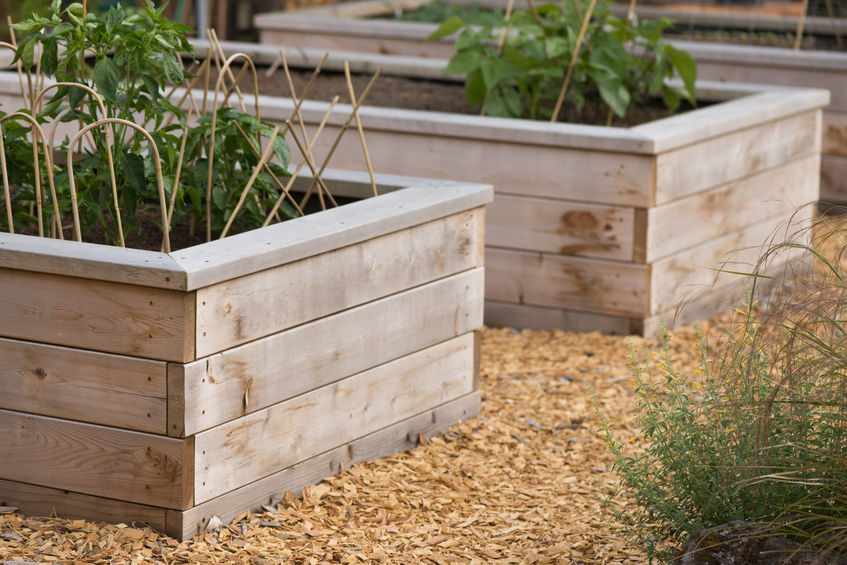 User-Friendly Raised Vegetable Garden Bed
User-Friendly Raised Vegetable Garden Bed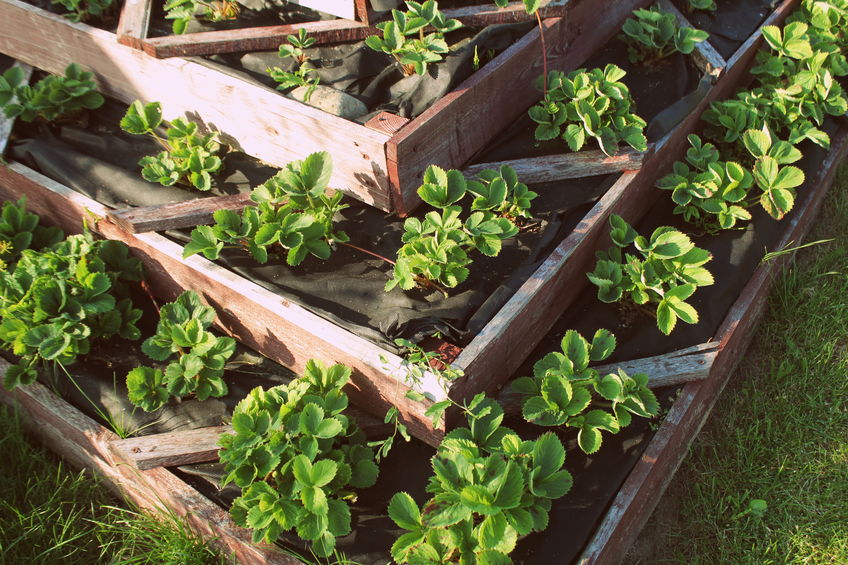 Raised Strawberry Bed
Raised Strawberry Bed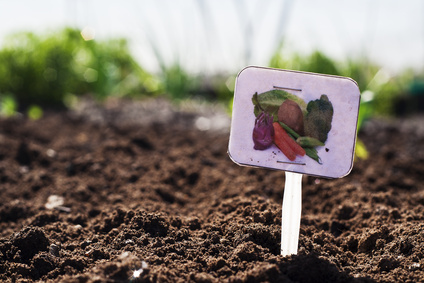 Vegetable Garden Row Marker
Vegetable Garden Row Marker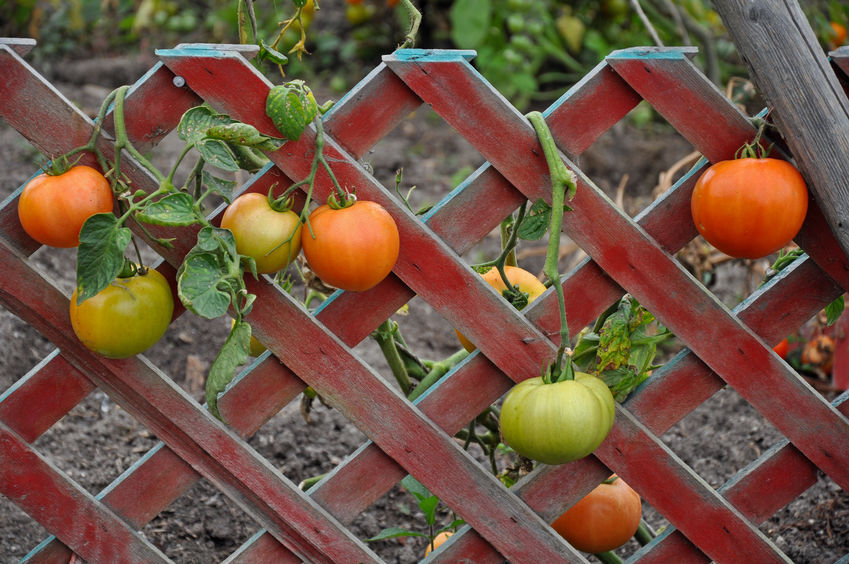 Tomatoes on Trellis
Tomatoes on Trellis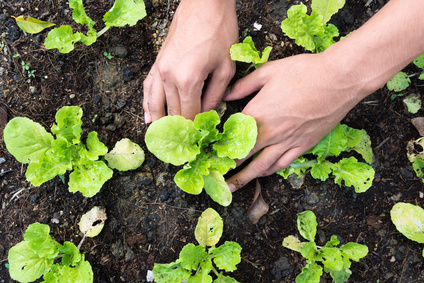 Wide Row Planting in Vegetable Garden
Wide Row Planting in Vegetable Garden Vegetable Garden Journal
Vegetable Garden Journal